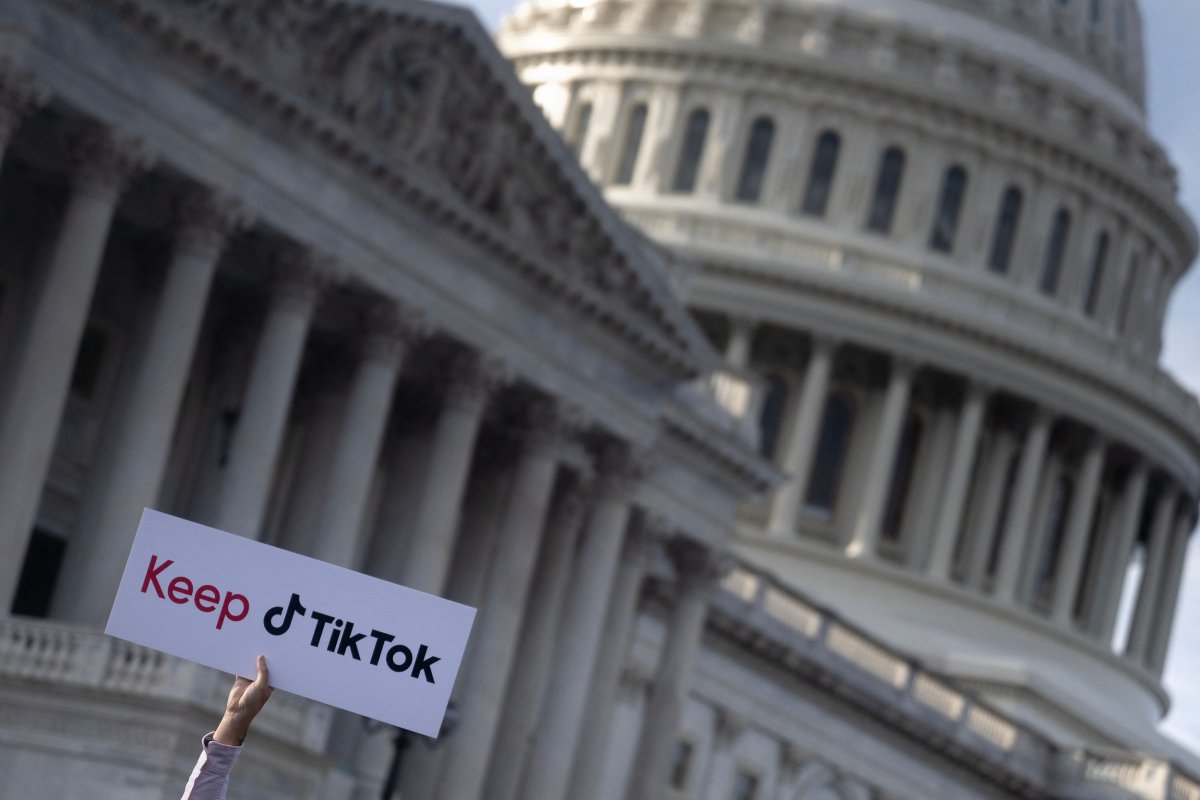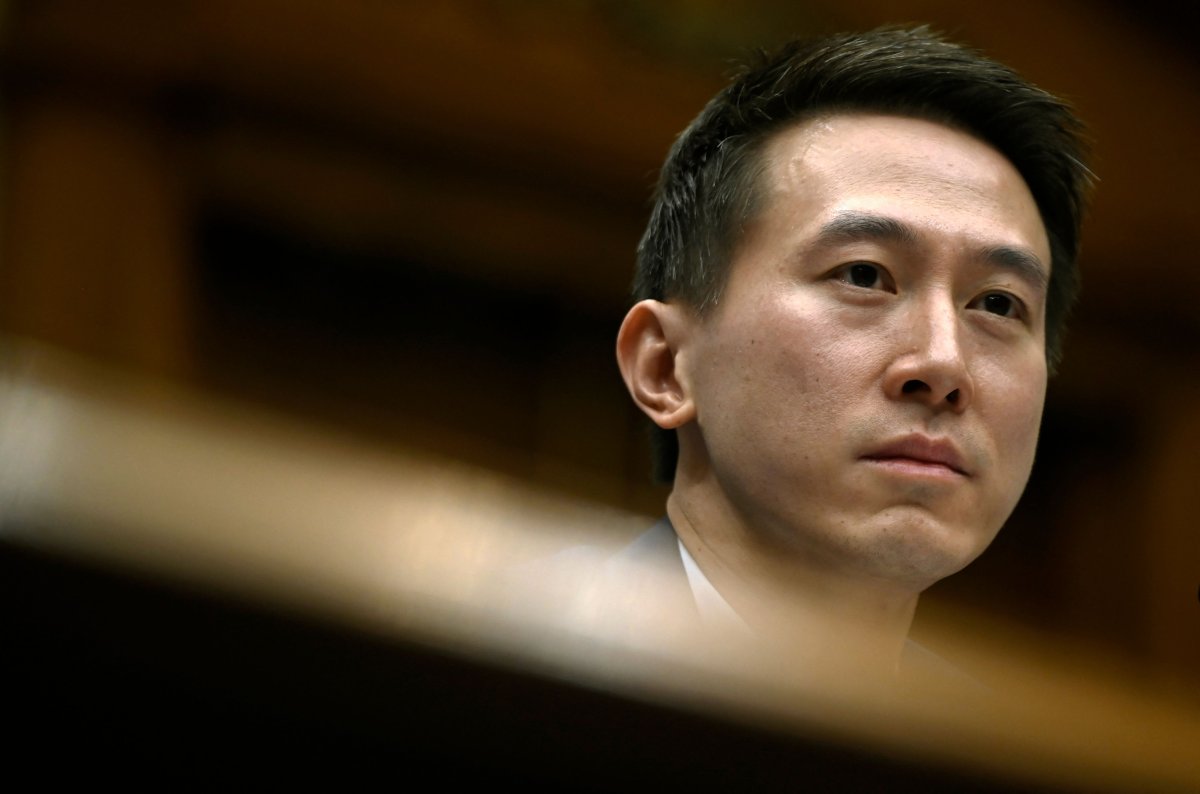Officials in China continued their full-throated backing of TikTok this week as the fate of the short-video app risked becoming a geopolitical football as it faces intense scrutiny in the United States.
"The U.S. has provided no evidence or proof to support its allegation, yet it has been abusing its state power to block and suppress the company concerned," Mao Ning, China's foreign ministry spokesperson, said Tuesday. A senior U.S. official had called TikTok a "Trojan horse." He said it posed long-term cybersecurity challenges linked to its Chinese parent company, ByteDance.
China has upped the volume of its opposition to a ban on the app, the country's most successful tech export ever, in the days after TikTok chief executive Shou Zi Chew's five-hour grilling by U.S. lawmakers. It was likely the most watched congressional hearing of the year so far.

TikTok says it has 150 million monthly active users in America. The app has become a rare point of convergence between Republicans and Democrats, and between the executive and the legislature. Policymakers are concerned about ByteDance's access to U.S. user data and its ability to manipulate what users see.
Chew, the Singapore-born CEO, dismissed both possibilities and said the company was ready to discuss more mitigation efforts. However, that may no longer be an option.
All parties of the U.S. government, perhaps driven primarily by overriding distrust of Beijing, have expressed some degree of support for a bipartisan bill. This would let the White House review—and possibly restrict—the operations of U.S.-based foreign companies involved in cloud computing, artificial intelligence and other emerging technologies.
"Why would you bring the Trojan horse inside the fortress?" Rob Joyce, who heads the NSA's cybersecurity directorate, said Monday at a policy conference in Napa.
"Why would you bring that capability into the U.S. when the Chinese could manipulate the data we see to either include the things they want to present to our population—divisive material—or remove the things that paint them in a bad light, which they would not like to be exposed to the American people?" Joyce said.
The official described the app as "a loaded gun." This reemphasized a position taken by NSA Director Gen. Paul Nakasone, who told the House Intelligence Committee on March 9 that "one-third of Americans get their news from TikTok."
Mao, the Beijing spokesperson, argued that Washington would be violating market norms by prohibiting TikTok. "The U.S. is hurting not just the interests of the company and the American people, but also its reputation as a nation and investor confidence in the U.S. business environment," Mao said.
In an editorial on March 28, the state-owned newspaper China Daily—widely distributed in America—wrote that U.S. officials were "in a tizz" because TikTok was both immensely popular and not a U.S. product.
Like Twitter or Google services, TikTok isn't accessible to users in China either. Instead, they are offered ByteDance's near-identical Chinese twin app Douyin. This is highly censored and lacks any content that might be seen as unfavourable to the Chinese government.

During his congressional hearing, Chew sought to highlight TikTok's operational independence from its Chinese owners and pledged to onshore all U.S. user data. The app was safer than most of its competitors, Chew added, but he failed to assuage fears about fundamental control over the app's proprietary algorithm.
At the same House hearing attended by Nakasone, FBI Director Christopher Wray said "the control of the recommendation algorithm could be used to conduct influence operations." He added that this wouldn't be "easily detected or ruled out."
A day earlier, Wray agreed with members of the Senate Intelligence Committee that, in a future crisis, TikTok's curated video feeds could be manipulated to display pro-China narratives.
Chew told the House Energy and Commerce Committee that TikTok "will not be manipulated by any government."
"TikTok has never shared, or received a request to share, U.S. user data with the Chinese government. Nor would TikTok honor such a request if one were ever made," Chew said. "ByteDance is not an agent of China or any other country."
In 2022, TikTok fired a number of employees, including at least two staff members in China. They had facilitated ByteDance's use of the app to access the data of American journalists as part of a probe into internal leaks. ByteDance was now the subject of a federal investigation led by the Justice Department and the FBI, according to reports this month.
TikTok's options are limited. After two years of mitigation talks with the U.S. government, the company last week confirmed in a statement to Newsweek that the Biden administration was considering a nationwide ban, unless ByteDance sells its stake in the app.
"If protecting national security is the objective, divestment doesn't solve the problem: a change in ownership would not impose any new restrictions on data flows or access," a spokesperson said.
"The best way to address concerns about national security is with the transparent, U.S.-based protection of U.S. user data and systems, with robust third-party monitoring, vetting, and verification, which we are already implementing."
Divestiture would also require regulatory approval by Chinese authorities. A spokesperson for China's commerce ministry said last week that Beijing would "firmly oppose" any forced sale of TikTok.
Do you have a tip on a world news story that Newsweek should be covering? Do you have a question about TikTok? Let us know via worldnews@newsweek.com.
Uncommon Knowledge
Newsweek is committed to challenging conventional wisdom and finding connections in the search for common ground.
Newsweek is committed to challenging conventional wisdom and finding connections in the search for common ground.
About the writer
John Feng is Newsweek's contributing editor for Asia based in Taichung, Taiwan. His focus is on East Asian politics. He ... Read more
To read how Newsweek uses AI as a newsroom tool, Click here.






